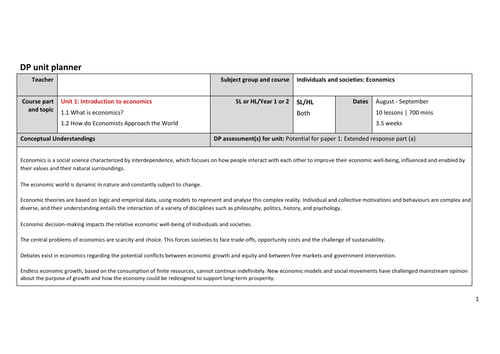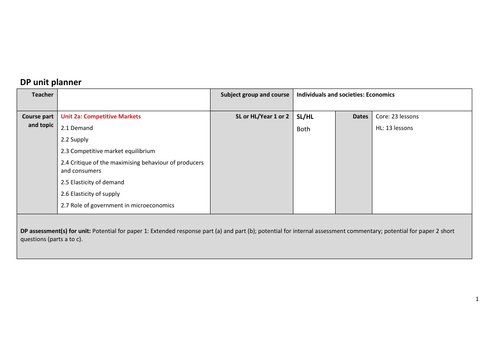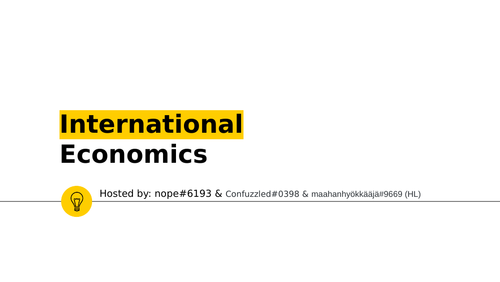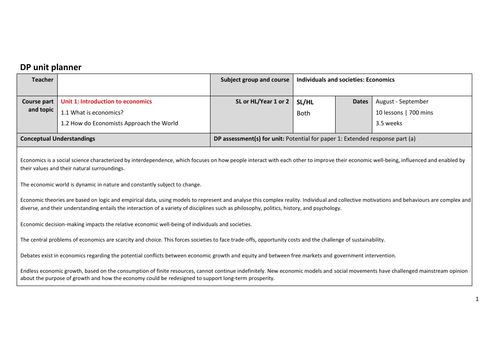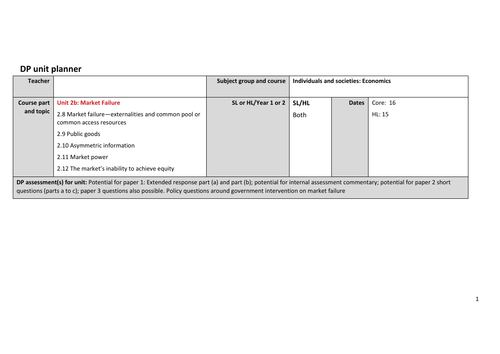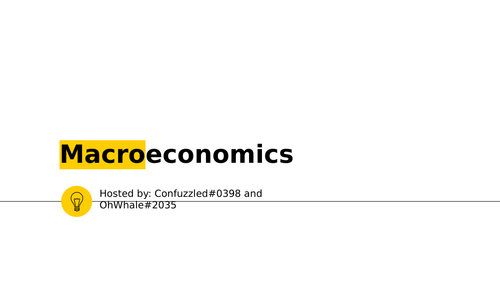23Uploads
806Views
10Downloads
All resources

IDBP New syllabus: Unit 1: Introduction into economics
IDBP New syllabus: Unit 1: Introduction into economics

IDBP new Syllabus 2022: Unit 2a: Competitive Markets
IDBP new Syllabus 2022: Unit 2a: Competitive Markets

IBDP Revision material (85 slides) for Global economy 2022
IBDP Revision material (85 slides) for Global economy 2022

IDBP New syllabus: Unit 1: Introduction into economics
IDBP New syllabus: Unit 1: Introduction into economics

IBDP Economics syllabus 2022: Unit 2b: Market Failure
IBDP Economics syllabus 2022: Unit 2b: Market Failure

IBDP Economics: revision ppt (110 slides) for MACRO economics new syllabus 2022
IBDP Economics: revision ppt (110 slides) for MACRO economics new syllabus 2022

IBDP Revision material (215 slides) for MICRO economics 2022
IBDP Revision material (215 slides) for MICRO economics 2022

IDBP Microeconomics exercises (New syllabus) with key SL+HL
IDBP Microeconomics exercises (New syllabus) with key SL+HL

IBDP Unit 1: 600 slides
Unit 1.1 Introduction to business management
Unit 1.2 Types of Organization
Unit 1.3 Organizational Objectives
Unit 1.4 Stakeholders
Unit 1.5 External Environment
Unit 1.6 Growth and evolution
Unit 1.7 Organizational Planning Tools (HL only)

IDBP ECONOMICS EXAMS (New syllabus) with key SL+HL
IDBP ECONOMICS EXAMS (New syllabus) with key SL+HL

IBDP: Biological Approach (Full unit resource set)
IBDP: Biological Approach (Full unit resource set)
it contains:
Examinations
Assessment
PPTs on: The Brain and Behaviour (Localization, Neuroplasticity, Techniques), Hormones and Behaviours (Hormones, Pheromones), Genetics and Behaviour, Introduction to Neurotransmission and the Brain
Unit reviews
Posters

IBDP Psychology: Unit 1, introduction
IBDP Psychology: Unit 1, introduction , a very comprehensive powerpoint

IBDP: Socio-Cultural Approach (Full unit resource set)
IBDP: Socio-Cultural Approach (Full unit resource set)
Contains:
Cultural Origins of Behaviour and Cognition (Culture, Cultural Norms, Cultural Dimensions)
The Culture Influences on Individuals identities, attitudes and behaviours
The Individual and the Group (SIT, SCT, Stereotypes, Conformity)
The Influence of Globalization
Review

IBDP: Cognitive Approach (Full unit resource set)
IBDP: Cognitive Approach (Full unit resource set)
Contains:
Cognitive Processes (Models of Memory, Schema Theory and Decision Making)
Reliability of Cognitive Processes (Reconstructive Memory, Biases in Thinking and Decision Making)
Emotion and Cognition (influence of emotion)
HL Extension Cognitive Processes in a Digital World
Unit Review

IBDP Global Politics: all units, resources and assessment
IBDP Global Politics: all units, resources, and assessment
contains texts, powerpoints, concepts, assessments, and teacher resources as well as practice papers and examples

IBDP TOK: all units, resources, and assessment
IBDP TOK: all units, resources, and assessment
Contains:
ToK related terms to use in essays and presentations
Extracting knowledge issues
Identifying Knowledge Issues
Formal ToK Presentation rubric
ToK Presentation Guides
Presentation ideas based on ethics and world politics.
Several tools on how to write essays
Excerpts from excellent reading materials
Lots of rubrics
Assessments
Handouts
Powerpoint and more

IBDP MATHS revision notes and exercises (Both years, SL and HL)
A massive IBDP maths revision resource for both DP 1 and DP 2 and for SL and HL both. This resource contains slides (in pdf) and exercises (over 40 resources) with keys on the topics below:
Numbers
number groupings
rounding
index laws
solving logarithms
harder logs revision
Algebra:
quadratics completing the square
quadratics factorising
quadratics quadratic formula
solving quadratics graphically
simultaneous equations
composite function
inverse functions
inequalities algebraically
inequalities graphing
sequences
Geometry:
circle theorems
more circle theorems
mixed triangles
converting between degrees and radians
trigonometry with radians
easy graph transformations drawing
transform graphs mini exercise
transformations of curves worksheet
transformations of curves worksheet
transformations of graphs
Probability:
Bayes theorem.
tree diagrams algebra problems
tree diagrams conditional
tree diagrams independent
venn diagrams

IBDP Maths on NUMBERS
A comprehensive lesson plan pack on IBDP Maths numbers
Number
Statement of Inquiry
Simplification requires an understanding and logical application of rule within a system
Contexts
Global: Personal and Cultural Expression
Key: Form
Related: Generalisation and Pattern
Questions
Factual: What is a relationship between a log and an exponent?
Conceptual: Is every mathematical relationship between numbers and a function=
Debatable: What happens when a function is not continuous?
ATLs
Communication: Interpret and use effectively modes of non-verbal communication
Self-management: N/A
Research: N/A
Social: N/A
Thinking: Utilise effective strategies in subject groups and disciplines

IBDP SL + HL Biology: Topic 1 – Cell biology
This zip file contains lesson plans, exercises, keynotes, lecture notes, PowerPoint presentations, and more for IBDP SL + HL Biology: Topic 1 – Cell biology

